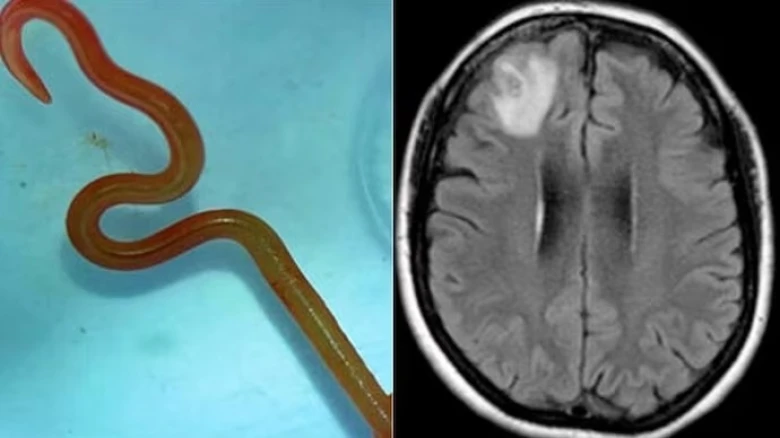This case represents a singular occurrence in medical history and has been identified as a third-stage larva of the Ophidascaris robertsi worm species.
Digital Desk: In the first case of its kind, Australian doctors examined a woman who had memory loss and depression symptoms and found a live parasitic roundworm measuring 8 cm inside her brain.
The patient, a 64-year-old woman from south-eastern New South Wales, was reportedly first admitted to her local hospital in late January 2021 after experiencing stomach pain and diarrhoea for three weeks. This was followed by a persistent dry cough, a fever, and night sweats.
Her symptoms expanded to include despair and amnesia by 2022, which led to a referral to a Canberra hospital. Her brain underwent an MRI scan, which revealed abnormalities that required surgery.
Dr. Sanjaya Senanayake, an infectious diseases specialist at Canberra Hospital, told The Guardian that the neurosurgeon "certainly didn't go in there thinking they would find a wriggling worm."
"Neurosurgeons deal with brain infections frequently, but this was a once-in-a-career discovery. Nobody expected to find that," he added.
This case represents a singular occurrence in medical history and has been identified as a third-stage larva of the Ophidascaris robertsi worm species. Infectious Diseases: An International Journal has published a report on the incidence. The digestive tracts of carpet pythons native to the Australian state of New South Wales typically contain this parasite roundworm.
Because Canberra is a small city, Dr. Senanayake explained, "we sent the worm, which was still alive, straight to the lab of a CSIRO scientist who is very experienced with parasites."
He just gave it a quick look and said, "Oh my goodness, this is Ophidascaris robertsi."
The experts working on her case proposed the hypothesis that a python may have released the parasite onto the grass in its poo. They hypothesise that the patient most likely acquired the parasite by contact with the indigenous grass, transmission of the eggs to food or cooking utensils, or perhaps ingestion of the eggs while consuming greens.

Leave A Comment